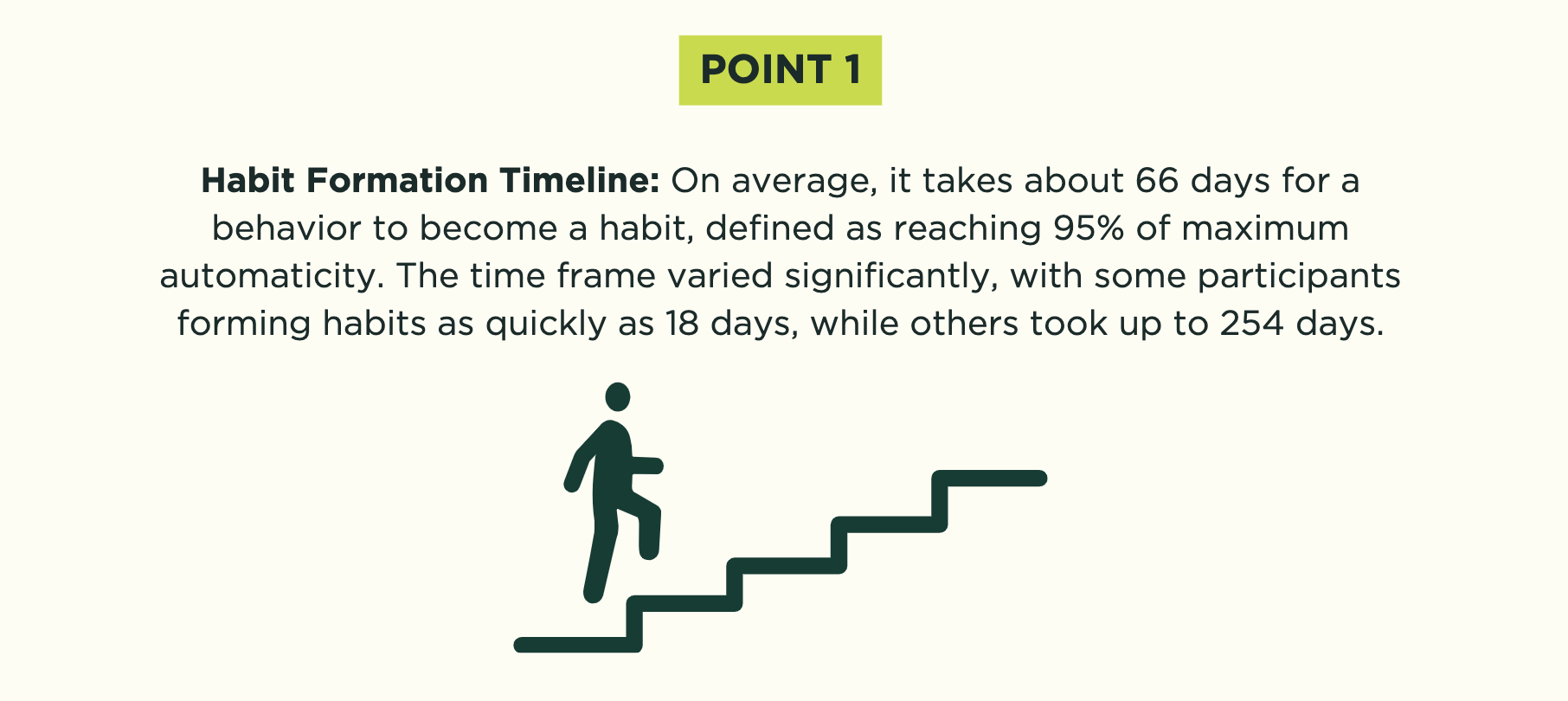
Small Steps, Big Wins
What if I told you that the secret to big changes in your personal or professional life lies not in grand plans, but in tiny, almost laughably small habits? It’s true—science has shown that small, consistent actions are the key to building lasting habits and achieving meaningful change.
Think about it: how many of us have set ambitious goals, like starting a complex fitness plan or tackling a major self-improvement project, only to burn out within weeks? Research shows that this isn’t about a lack of willpower—it’s about the approach. That’s where the science of habit formation comes in, offering practical, research-backed strategies to make lasting change possible.
One of the most compelling insights into habits comes from the
Fogg Behavior Model (FBM), which outlines that behaviour happens when three elements—Motivation, Ability, and a Prompt—converge. It’s a simple yet profound framework: if something feels easy and you have a trigger to remind you, it’s more likely to stick.
This is why small habits, like flossing one tooth or doing just one push-up, can be so powerful. These tiny actions remove the barriers that overwhelm us with bigger goals. Over time, they naturally build momentum, confidence, and—most importantly—consistency.
Tiny Actions are Powerful
Research shows that starting with small, manageable habits—like flossing one tooth—lowers resistance and builds confidence, making it easier to scale up over time.
Good Prompts
Are Key
The FBM emphasizes that no behaviour happens without a prompt. Anchoring new habits to existing ones, like stretching after brushing your teeth, creates a natural cue for action.
Simplicity Drives Success
FBM also highlights that making a habit easy to do increases the likelihood of consistency. When the effort required is low, it’s easier to repeat the behaviour, even when motivation dips.
Let’s face it, the “all or nothing” mindset is seductive. Starting a new workout plan or changing your entire diet sounds inspiring at first, but it’s also exhausting. When motivation inevitably dips (and it will), these complex routines often crumble.
This is where small, sustainable habits shine. Instead of overhauling your entire day, you start by anchoring a new habit to something you already do. For example:
- Brush your teeth? Floss one tooth.
- Make coffee in the morning? Do a 30-second stretch while it brews.
- Sit down to work? Write down one thing you’re grateful for before diving in.
These micro-habits may seem insignificant, but they’re the building blocks of lasting change.

Summary slide from our course on habits.
As clinicians, we often ask our patients to make changes—stretch more, eat better, exercise, or improve sleep habits. But how often do we pause to consider whether those changes are realistic or sustainable? Are we setting them up for success or overwhelming them with complexity? What are the short and long-term consequences of providing someone with 5 exercises, loads of advice, and other steps to take to get on the road to recovery at the outset?
Imagine how different the outcomes could be if we applied the science of small, incremental habits to our clinical practice. Instead of recommending 30 minutes of daily exercise, what if we encouraged patients to start with five minutes of gentle movement tied to something they already do, like watching TV or getting ready for bed?
By focusing on ease and consistency, we can empower our patients to build habits that stick.

Build Better Habits with Our Short CourseIf this stuff resonates with you, you’re not alone. Whether you’re a clinician looking to enhance your practice or someone seeking personal growth, understanding habit formation is a game-changer. That’s why we created a short
course on habit formation, designed to give you actionable insights and practical tools you can use right away.
In the course, you’ll:- Learn the science of habit formation
- Discover how to use small changes to achieve big results.
- Explore real-life examples of habit-building in clinical and personal settings.
- Walk away with tools to apply this knowledge to your life or practice.
To make these ideas stick, why not start your own tiny habit today? Read for 10 minutes before bed, take 100 extra steps a day, or write down one thing you’re grateful for in the morning. Small actions lead to big wins, and we’re here to help you get started. Thanks for reading! Stay Nerdy!
Sean Overin, MPT, DPT Physiotherapist



